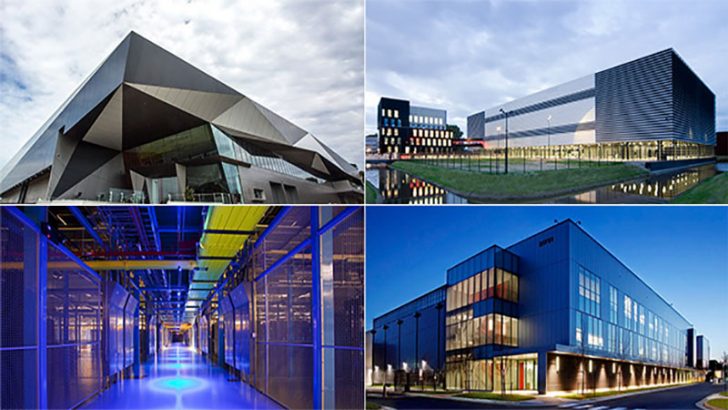Global data centre giant Equinix has announced its latest expansion plan. It’s last major expansion phase saw it swallow most of the Verizon’s global data centre portfolio. Now it has announced it is to open five new International Business Exchanges (IBX) and expand 14 others. Once completed, this will take the total number of IBX data centres to 155. The cost is put at a one-off $1 billion and takes the company’s investments to a total of $17 billion since it was founded.
According to Steve Smith, CEO, Equinix: “The transformative impact of the shift to digital is touching every company and requiring an IT infrastructure that can accommodate this new reality. As a result, companies are seeking to bring their data to the digital edge — closer to customers, employees and strategic partners. The globally consistent footprint of Equinix, combined with its ability to facilitate the critical interconnection between companies, is enabling this shift, creating opportunity for business growth in a rapidly changing digital world.”
Where will the new IBX data centres be located?
The new IBX data centres will be in Brazil, Germany, the Netherlands and USA (2). The five new IBX data centres increase Equinix’s capacity by over 5,675 cabinets and 912,000 gross square feet of data centre space. They are:
- Sao Paulo: The first phase of SP3 IBX was announced in March. It is the fifth IBX data centre in Brazil. When complete it will be the largest multi-tenant data centre in Latin America.
- Frankfurt: Expected to open in Q2, 2017 it will be the sixth IBX data centre in Frankfurt. The first phase will add 1,325 cabinets and over 72,000 gross square feet of space. Frankfurt is hoping to attract financial institutions from London as the UK and EU begin to address Brexit. By opening another IBX data centre here, Equinix will hope to cash in on its existing London based customers who are looking to move.
- Amsterdam: This is scheduled for Q3, 2017 and is a brand new 12-story data centre. Phase one adds 1,555 cabinets and more than 245,000 gross square feet of data centre space. Amsterdam is Equinix’s core hub providing access to the majority of Europe within 50 milliseconds.
- San Jose: Named SV10, this will open in Q2, 2017. It is the first of several planned builds on 11 acres of land that Equinix acquired in 2016. It will add 795 cabinets and more than 190,000 gross square feet of data centre space.
- Washington DC: Planned for Q3, 2017 this will extend Equinix’s existing Ashburn campus. It will add more than 1,275 cabinets and more than 190,000 gross square feet of data centre space. This is the first build on the 44 acres of land Equinix acquired in 2012 and will be the 11th IBX data centre in the Washington DC area.
Equinix expanding existing facilities
In addition to the five new IBX data centres. Equinix is to expand 14 other locations. This includes: Amsterdam, Dallas, Dubai, Dublin, Frankfurt, Helsinki, Hong Kong, New York, Paris, Rio de Janeiro, Singapore, Toronto and Zurich.
The press release also included a round-up of other expansion activity announced this year. It includes the additional 34.5 acres of land in Ashburn, VA. It has already said that this land will be used to build more IBX data centres in the region. This will make Equinix the largest data centre player in North America.
It is also acquiring new data centres in London and Zurich to expand its portfolio. It was forced by the EU to divest itself of some the data centres it gained as part of the Telecity acquisition which closed in 2016. Since then, it has been buying more European data centres and will be wary of further restrictions regulators may place upon it.
However, the push for more data centres in order to keep data in-country as a result of data sovereignty rules plays into Equinix’s hands. It allows it to buy smaller data centre operators outside of the key data centre hubs. This way it can expand its growth quickly without being seen as being too dominant.
Conclusion
Equinix has been on a constant acquisition footing for several years and shows no signs of letting up. It has effectively dealt with regulators ordering it to divest some properties by replacing them with others. It is already the leader in the colocation data centre market with a market share of over 11%. This is likely to grow over the next few years driven by cloud and in particular the growth of smaller, more focused industry sector cloud.



























